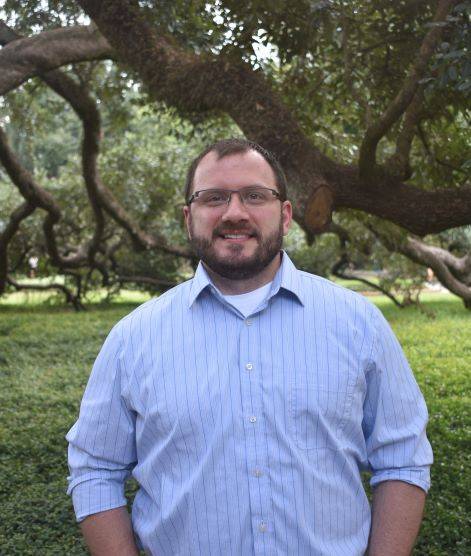Ryan Hill, Associate Professor
 Office: 218 Audubon Hall
Office: 218 Audubon Hall
Department of Psychology
Louisiana State University
236 Audubon Hall, Baton Rouge, LA 70803
Email: ryanhill@lsu.edu
Dr. Hill is accepting new students in Fall 2026.
Research Interests
Dr. Hill’s research is focused on the prevention of suicide-related thoughts and behaviors among child, adolescent, and emerging adult populations. His research interests span suicide prevention broadly, from basic research to enhance our understanding of the development and maintenance of suicidal thoughts to applied research developing and testing brief interventions to reduce suicide risk. The ultimate goal of this work is to reduce the rate of suicide and suicide-related thoughts and to enhance the lives and well-being of youth and emerging adults.
Specific areas of interest include (a) examining interpersonal processes as they relate to the development of suicidal thoughts, (b) developing web-based brief interventions to reduce suicidal risk and enhance resilience, (c) studies to prevent suicide among underrepresented and underserved populations, including LGBTQ+ youth and racial/ethnic minority youth.
Students can assist in multiple phases of this research, including literature searches, study recruitment, interviewing study participants, developing surveys, assisting with community-based training, statistical analysis and project management. Students in Dr. Hill's lab are expected to commit to a minimum of two semesters. Independent study opportunities are reserved for students actively engaged in the lab. Interested students are encouraged to contact Dr. Hill at ryanhill@lsu.edu.
Education
- PhD, Clinical Science of Child and Adolescent Psychology - Florida International University
- MS, Clinical Science of Child and Adolescent Psychology - Florida International University
- BA, Psychology - The University of Michigan
- Professional Licenses
- 2023 Present Licensed Psychologist - State of Louisiana (#1690)
Representative Publications
Hill, R. M., Gushanas, K. L., Alvis, L., Dodd, C. G., Kurian, S., Saxena, J., Saxena, K., Kaplow, J. B., Rufino, K., & Williams, L. (2021). Geospatial identification of high youth suicide risk areas via electronic health records: Avenues for research and prevention efforts. Suicide and Life-Threatening Behavior.
Hill, R. M., Rufino, K., Kurian, S., Saxena, J., Saxena, K., & Williams, L. (2021). Rates of suicide ideation and attempt in a pediatric Emergency Department before and during the COVID-19 pandemic. Pediatrics.
Hill, R. M., Mellick, W., Alvis, L., *Dodd, C. G., *Do, C. Buitron, V., Sharp, C., Pettit, J. W., & Kaplow, J. B. (2020). Performance of the Interpersonal Needs Questionnaire in adolescent clinical samples: Confirmatory factor analyses and evaluation of measurement invariance. Suicide and Life-Threatening Behavior.
Kassing, F., Dodd, C. G., Palmer, L. E., & Hill, R. M. (2020). Comfort expressing emotions and suicide ideation: Evidence of indirect effects via perceived burdensomeness and thwarted belongingness. Archives of Suicide Research.
Hill, R. M. & Katusic, M. (2020). Examining suicide risk in individuals with autism spectrum disorders via the interpersonal theory of suicide: Clinical insights and recommendations. Children’s Health Care. doi: 10.1080/02739615.2020.1741360
Kassing, F., Alvis, L., Hill, R. M., & Kaplow, J. B. (2020). A person-centered approach to examining polytraumatization among traumatized and bereaved youth. Journal of Loss and Trauma. doi: 10.1080/15325024.2020.1783105
Moscardini, E., Hill, R. M., *Dodd, C., Do, C., Kaplow, J., & Tucker, R. (2020). Suicide safety planning: Clinician training, comfort, and safety plan utilization. International Journal of Environmental Research and Public Health.
Hill, R. M., Hunt, Q., Oosterhoff, B., Yeguez, C., & Pettit, J. W. (2019). Perceived burdensomeness among adolescents: A mixed-methods analysis of the contexts in which perceptions of burdensomeness occur. Journal of Social and Clinical Psychology, 38(7), 585-604. doi: 10.1521/jscp.2019.38.7.585